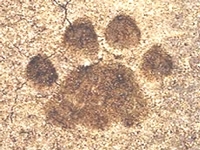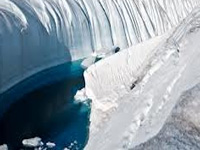To save the planet, first save elephants
Wiping out all of Africa’s elephants could accelerate Earth’s climate crisis by allowing 7% more damaging greenhouse gases into the atmosphere, scientists say. But conserving forest elephants may reverse
Wiping out all of Africa’s elephants could accelerate Earth’s climate crisis by allowing 7% more damaging greenhouse gases into the atmosphere, scientists say. But conserving forest elephants may reverse
There are two new spider species for you to be terrified of--or mesmerized by, depending if you like the eight-legged creatures or not. Scientists have uncovered two new species of peacock spiders that
It is known that the Sun plays an important part in controlling the Earth's climate, but now researchers show that solar activity affects climate change more than previously thought, according to recent

Researchers have discovered a link between the levels of certain environmental pollutants that a person accumulates in his or her body and their level of obesity. "We found that people with higher levels
Wheat was present in Britain 8,000 years ago, according to new archaeological evidence. Fragments of wheat DNA recovered from an ancient peat bog suggests the grain was traded or exchanged long before
Scientists have witnessed carbon dioxide trapping heat in the atmosphere above the United States, showing human-made climate change 'in the wild' for the first time. A new study in the journal Nature
<p>A low cost mobile weather station made in Sri Lanka can capture and transmit near real-time data on rainfall. It raises alarm in the event of extreme rainfall and other natural disasters, which can help farmers, disaster management officials and the scientists plan ahead. The device, costing US $250, is made primarily from locally sourced materials.</p>

Reigniting the debate over India's tiger census, which has shown a 30% rise in the big cat's population in four years, a British-Indian team of scientists has said the exercise mostly likely suffers from
Scientists are learning a bit more about abrupt climate shifts. They examined African lake sediments from the past 20,000 years in order to advance their understanding of current changing weather patterns

Providing a vital clue to the future of Greenland, scientists have measured how the island's ice sheet reacted to a warm period 8,000 to 5,000 years ago when the temperatures were two to four degrees Celsius
Scientists have now turned smartphones into personal, real-time air pollution monitors. The team used smartphone and sensing technology to better pinpoint where and when pollution is at its worst. The